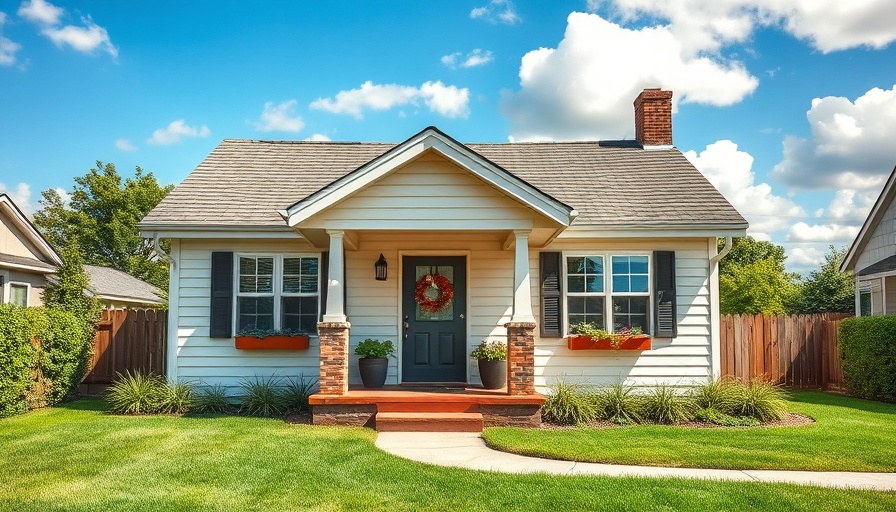
Why Downsizing a Home Could Be Your Best Decision Yet
While many aspire to live in spacious homes replete with various rooms and lavish spaces, organizing expert Shira Gill demonstrates the merits of opting for smaller living environments. Living with her family in a cozy 1,200-square-foot bungalow in the San Francisco area, she highlights how a smaller abode fosters not just financial freedom but enhances quality of life. Gill's ethos is rooted in simplicity, advocating that "less is more"—an idea resonating with many struggling with rising housing costs and overwhelming maintenance responsibilities.
The Financial Freedom of a Smaller Home
In today's housing market, the realization that larger homes often bring higher costs hits home for many. According to data from the Intercontinental Exchange, U.S. housing affordability is at its lowest level in four decades. Smaller homes present a practical solution, allowing families like Gill's to avert the financial strains often associated with owning larger properties. Lower mortgage payments, reduced utility costs, and minimized home maintenance allow inhabitants to invest money in experiences and aspirations rather than mortgage debt.
Less Cleaning, More Living
Living in a small space yields less cleaning overhead. Gill notes that maintaining their home requires merely a fraction of the time typically spent tidying larger residences. This allows for more time spent on meaningful activities—traveling, exploring hobbies, and connecting with loved ones. From her insights and reinforced by others, the ease of upkeep can transform one’s home life from stressful to serene.
Environmental Benefits of Smaller Living
Beyond personal finances, living in smaller homes may have a positive environmental impact. Lesser space yields fewer resources used for heating and cooling, as Gill mentions. This footprint reduction results not only in savings but also conserves energy, linking sustainable living with intimate home environments. A commitment to environmental stewardship is increasingly important; nesting in a smaller home directly contributes to that cause.
Enhanced Family Interaction: Quality Over Quantity
Another compelling argument for smaller homes is the potential for deeper family connections. Gill suggests that smaller living spaces stimulate interaction among family members, fostering environments where meaningful relationships can flourish. In larger spaces, it's easy for family members to retreat into their individual rooms—such separation can dilute familial closeness. Smaller homes, on the other hand, promote shared moments, crucial for building lasting bonds.
Less Clutter and a Cleaner Mental Space
The concept of mindfulness in consumption resonates loudly in discussions about smaller living. According to Joshua Becker, who echoes Gill’s sentiments, owning less often leads to clearer mental landscapes. By downsizing, individuals push themselves to reflect on what’s truly important, shedding unnecessary possessions that can weigh down both physical and emotional spaces. Fewer possessions can lead to less clutter—not only in homes but also in our minds.
Actionable Insights: Embrace a Smaller Lifestyle
With mounting evidence from personal anecdotes and experiences, consider whether downsizing could offer you a path to increased happiness and financial wellness. Reflect on how a smaller home might not be a compromise but a liberating choice aligning perfectly with your lifestyle goals.
If you find current housing trends overwhelming, or if you’re simply curious about the benefits of simplifying your housing situation, exploring smaller options may be the empowering answer you seek.
#minimalism, #sustainability, #financialfreedom, #simpleliving, #downsizing
 Add Row
Add Row  Add
Add 




 Add Row
Add Row  Add
Add 


Write A Comment